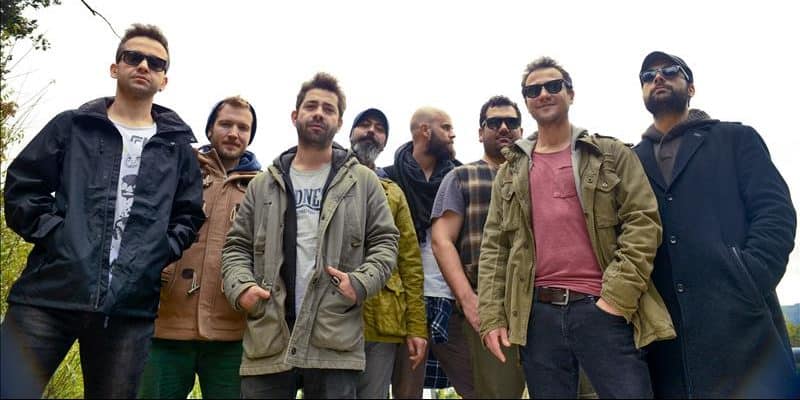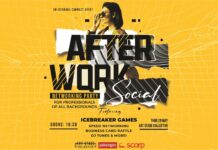Editor’s Note: Sattas will be headlining this year’s Oktoberfest Istanbul on Saturday 5 October. For more details, visit the official event page.
For locals interested in reggae music, the place is Nayah. Having moved in recent years from Beyoğlu, the humble venue now finds its home in Kadıköy, it’s migratory location mirroring a similar tendency in the Istanbul reggae scene since its introduction to Turkey in the 1980s. The way local reggae musicians or ‘selektas’ (DJs) describe it, the community here has always found itself on the move, away from the unflattering misconceptions about reggae culture and in search of where they can feel free to play and enjoy the music they love.

It was in pursuit of this musical freedom that Orçun “Leo” Sünear and Derya “Derryll” Eke founded the popular local reggae band Sattas. With their original sound, a blend of reggae with ska, jazz, blues, and rock, the group has garnered a lively following and established itself as a major tastemaker in the local music scene. Since their origins over a decade ago, the group has released the first reggae album in Turkey, played regularly at popular venues and events including Babylon, Peyote, universities, and festivals (including the 2015 edition of One Love), and performed internationally in Canada, Hungary, the Czech Republic, and even the infamous Rototom Festival in Spain. Locals familiar with Sattas remark that even people who don’t listen to reggae can enjoy their concerts, and that ‘entertainment fullness’ is guaranteed.
I recently caught up with some of these pioneering personas along with long-time selekta veteran Ahmed “Mahi” Elmahi at, of course, Nayah, where they offered up their insights from inside the local reggae scene.
Thanks for taking the time to chat. You’ve been described as the most popular local reggae band in Istanbul. How would you describe your sound?
Orçun Sünear: We started with root reggae but we’ve changed our style a little. We say it’s just reggae – not root reggae.
Batu Kurnaz: We’re from Turkey, so if we try to do just Jamaican music, that wouldn’t be sincere. As the starting point we take Jamaican reggae music, but from there on we put our own cultural influences inside so that we can create something different.
Could you tell us about your early days and journey as a group?
O.S.: In the first days, we wanted to just quit. We tried to cover ‘I shot the Sheriff’, and it was TERRIBLE! I couldn’t sleep. I was always up thinking. After that night I called the guys, and said “We have to try again. We have to try.” I’m always saying, “We are learners. We are still learners.” Reggae music is a school, and we, Sattas, are students.
B.K.: People are always looking for something different, and the Turkish audience has been subjected to a certain kind of music genre for a long time. It’s either pop, or Anadolu rock, or maybe arabesque, but when you make something different and with Turkish lyrics, it has a natural audience because everyone’s curious for something new. We’ve also had people from many genres collaborating with us, so it has been a diverse journey.
What can you tell us about Nayah?
B.K.: This is a sacred place for reggae musicians. I don’t know how to describe it with words, but it’s home. We feel safe here, because we know the audience that comes here would appreciate reggae music.
O.S.: Nayah is a culture – reggae culture. The name isn’t important, just the place – the community.
How would you describe the reggae scene in Turkey relative to the international reggae culture?
O.S.: We were at Rototom, and it was the best. It’s one of the biggest European reggae festivals in the world. There were so many reggae musicians and there was such reggae community. I don’t smoke, but I felt like I was high because of the people. They were always smiling and kind. I didn’t see them as women or men, I just saw them as people, as humans. In Turkey, we’re not the first reggae musicians, but we made the first album, and the reggae scene here is getting bigger and bigger.
B.K.: Popularity-wise we were the first in Turkey, I suppose. But our popularity gave courage to other people to create more reggae music, and it’s great for the reggae music entirety as well.
If the reggae community is growing, why don’t we see reggae music festivals in Turkey or even more reggae bands? What challenges does reggae music face in Istanbul?
Mahi: I think sponsorship. We’ve tried a couple of times to organize reggae festivals, but they didn’t work because nobody would help. We tried in Kilyos a couple of times, but even that was a failure, a miserable failure. I think it’s also the result of the fact that reggae is against capitalism – the ‘Babylon system’ as we call it.
B.K.: Exactly. From this mindset, if you want your music promoted, you have to invest in it. You have to pay for advertisement. And reggae musicians don’t tend to do that because they’re making reggae music and want to grow organically, not artificially. I think the main difference is morality. Reggae musicians, in my opinion, don’t see morality in promoting music. They see morality in organic growth. If they touch people’s hearts, that is reggae music for you.
Mahi: True. This is one of the things – when you play music to complete strangers, and after your set is over, people stop you on the way, and shake your hand and say, “That was a nice set. Thank you very much.” That, for me, makes me feel like the happiest person in the world. I made somebody I don’t know happy for like an hour.
B.K.: Exactly. I completely agree with this. And as far as capital goes, many reggae musicians are playing with other bands as well, just to finance this whole reggae project of theirs. I myself play with eight different bands. I have a full schedule of concerts and make my living from what I earn there so that I can make reggae music here, so that I can make something that I enjoy.
Mahi: I think it’s almost the same with jazz musicians. There’s no money in jazz, so what they do is pop music as side projects. They do pop and make money, and then they do jazz to satisfy their own musical tastes.
B.K.: I think, while you’re right, there’s a sweet challenge there. Like jazz musicians, for example, they put their jazz influence into the pop music, so they create something different. If you create something, you’re never content with what you’re creating. You always have to try something different. You always have to look forward. If you’re content with where you are, then you lose. You have to always try something. You have to always change. So, in a way, working with different projects, like pop projects, is creating an impact on you, because you’re forced to learn something which is opposite to you. Whether it’s positive or negative, that depends on you. After all, it’s an experience.
How can people interested in reggae know what is going on and where?
B.K.: They can follow us on social media. But, apart from that, this place is a good start to know all the names of reggae musicians, because either way they pass through here. Nayah is the meeting point for reggae musicians.
To keep up with Sattas, check out their official Facebook page.
Image courtesy of Barock 42.









